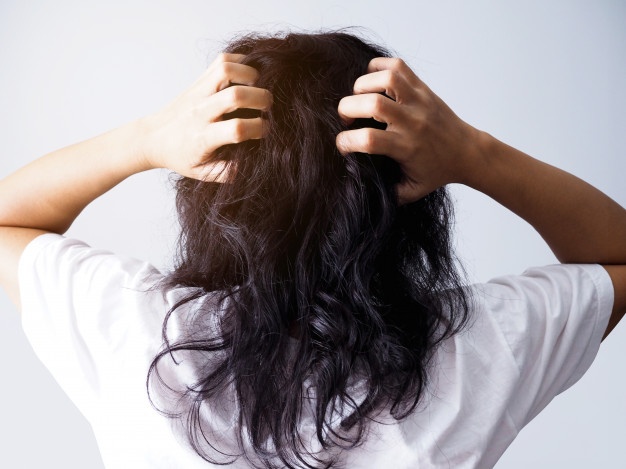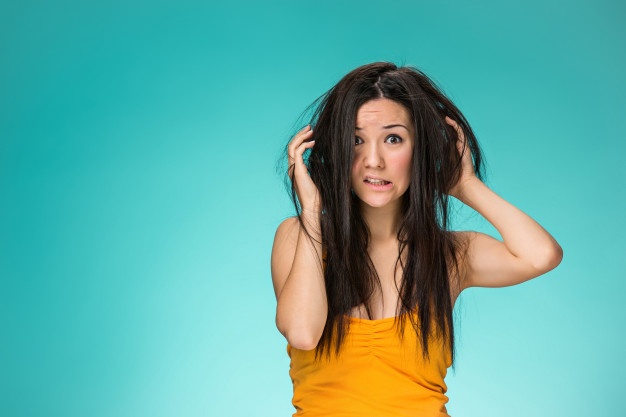There’s a difference between having a bad hair day and a hair problem. If you’re having a bad hair day, it means that you’ll probably have a good one tomorrow. But if what you have is a hair problem, then it won’t become okay until you treat it accordingly. So, if what you have is the latter, here are some tips you can use to address these four common hair problems:
Dandruff
Dandruff isn’t a hair problem so much as it is a scalp problem. This is because the dry, white, and itchy flakes are dead skin cells. So contrary to popular belief, it’s not about how often you wash your hair or if you’re using the right products; rather, dandruff can be caused by your genetics.
Although it’s harmless, having dandruff can be embarrassing because the white flakes can fall off your scalp and onto your shoulders every time you scratch an itch. And because it’s a widely misunderstood scalp condition, some people would point fingers or even shame those who have dandruff in public.
If you want to manage your scalp condition, the best way is to use all-natural anti-dandruff shampoo that can help soothe irritation and reduce itchiness. Some products can also go so far as to normalize the amount of sebum that the scalp produces, which can help lessen the flakiness.
Oiliness
It’s natural for the hair to become oily because the scalp secretes a natural oil called sebum, which helps coat the hair and protect it from damage. This sebum isn’t bad, per se, because it keeps the hair hydrated without having to rely on additional hair products or treatments.

image by freepik.com
But it becomes a problem when the sebaceous glands produce too much sebum, which can cause your hair to be greasy or oily. This is not only uncomfortable because the oil can feel heavy on your scalp, but it can also affect the appearance of your hair because instead of being light and bouncy, it appears slicked back despite the lack of styling products.
So if you want to get rid of your hair’s oiliness, you can use shampoos and conditioners made for oil control. But of course, there’s a fine line between oily hair and moisturized hair, which means you have to be careful because you might end up stripping all the natural oils from your hair in the process.
Dryness
Most people have been led to believe that they need to shampoo their hair every day to stay hygienic. However, not only is this a waste of expensive hair products, but it can also severely damage the hair because of over-washing. In reality, you only need to wash your hair every two to three days or as the situation calls for it.
Every time you wash your hair, you’re getting rid of the dirt and pollutants that have settled in it throughout the day. But you’re also stripping the hair of its natural oils and nutrients that protect it from damage. This means that if you use shampoo more than twice a day, your hair will no longer be able to produce its natural oils nor benefit from its effects.
So, unless you have dirty or oily hair, try to reduce your hair washing to once every two or three days. On a regular workday or if you’re only at home, it’s impossible to get your hair dirty fast. By limiting your shampoo use, you’ll be curbing an old habit that has been causing your hair to be too dry.
Dullness
There could be a lot of reasons why your hair is becoming duller than it used to be. For instance, if you tend to use styling tools like curlers, straighteners, or even blow dryers often, then the dullness might be brought about by heat damage. Constantly subjecting your hair to hot temperatures can make it lackluster.
On the other hand, if you don’t use styling tools but dye your hair, this can also lead to color damage, especially if you prefer loud, vibrant colors. This is because you would have to bleach your hair several times to achieve the right tones. All those chemicals can then strip your hair of its natural oils and nutrients.
If you feel like you have heat or color-damaged hair, the best thing to do would be to let your hair breathe for the meantime. Stop using heated styling tools or avoid dying your hair until it returns to its healthy state. It could also bode well for you to use a conditioner or treatment that will moisturize and help your hair grow faster.
The sooner you address your hair problem, the sooner it can return to its healthy state. So don’t wait until the problem gets out of hand before you choose to address it because your hair is your crowning glory. And you won’t want white flakes, oiliness, dryness, or dullness to affect your appearance.

Be the first to comment on "All Strands on Deck: Dealing with Four Common Hair Problems"